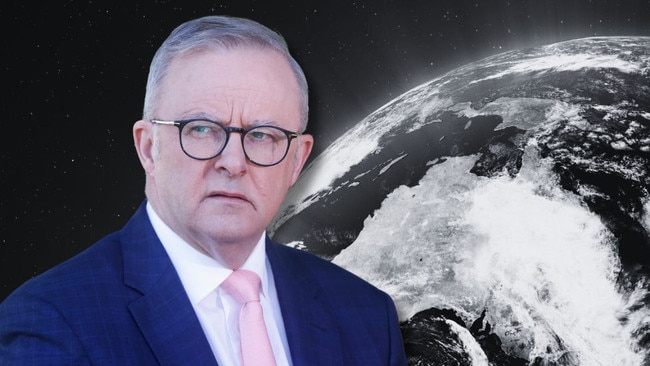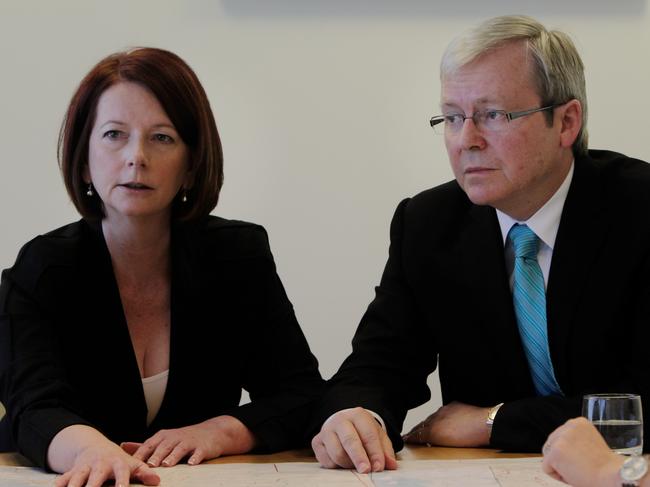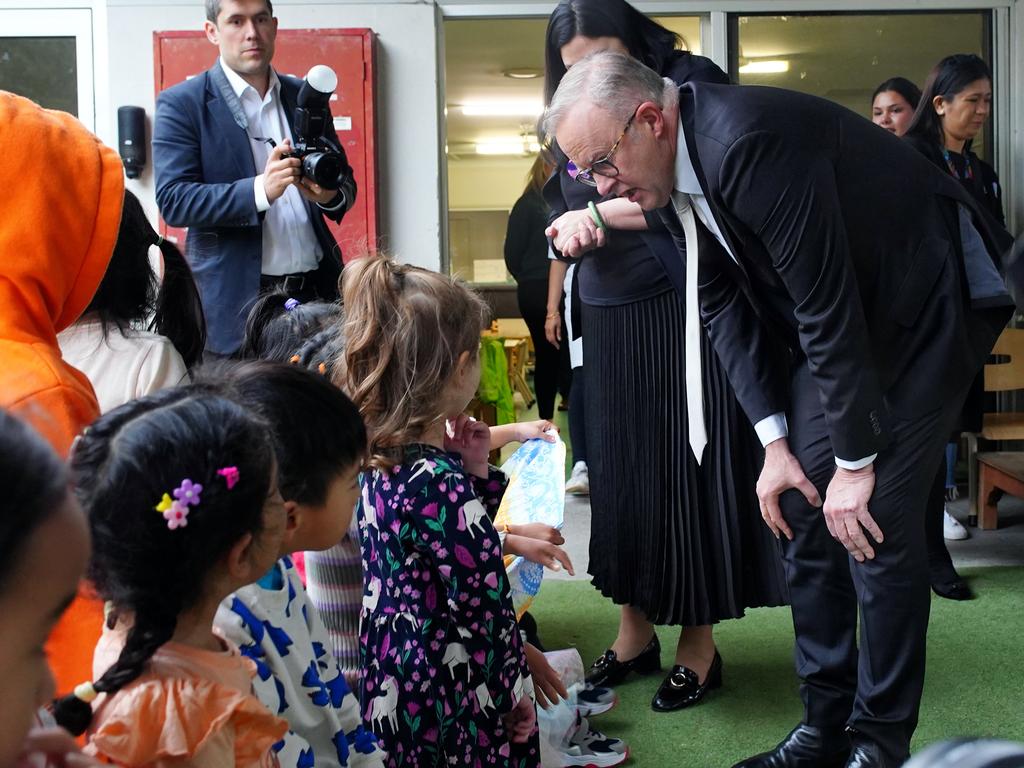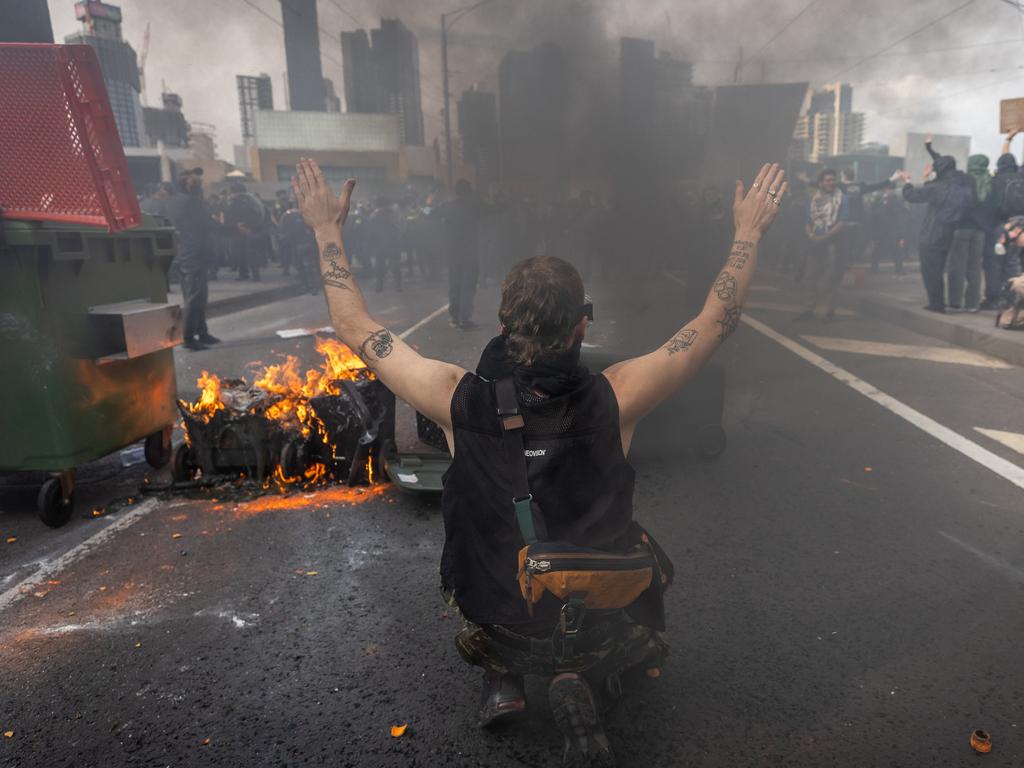
In his valedictory speech to parliament this week, Bill Shorten made a veiled swipe at the timid approach that followed his policy-rich election loss in 2019. “Through my time as Labor leader I was proud to lead not just a strong opposition but a genuine positive alternative,” Shorten said.
The former Labor leader said “right now around the globe democracy is under greater challenge than at any time since the second world war” and “we have to jealously guard and nourish our democracy and safeguard our pluralist society”.
Few would disagree, but fewer still could argue the Prime Minister is meeting that challenge.
Theoretically a government with little ambition might be a good thing – first, do no harm. But the lack of a platform and a limited mandate tend not to constrain ideologues once they take the Treasury benches.
From record government spending to unprecedented immigration, Albanese Labor has turned its small target into a range of massive problems. Not since Kevin Rudd and Julia Gillard lost control of our maritime borders have we seen our country deteriorate before our eyes like this.

This time the damage is more widespread. Starting with the same issue, Labor has cut aerial and maritime surveillance and at least eight people-smuggling vessels have delivered asylum-seekers to our shores, something that had not happened for a decade.
The abolition of temporary protection visas and ongoing mishandling of court cases and monitoring of criminal non-citizens released from immigration detention might have put more sugar on the table. As ever, Labor’s activist bent and lack of resolve is leading to border-security strife.
This comes at a time of record immigration, with net migration topping a half-million people two years in a row, so that in the space of a single term Labor will have added the population of Adelaide to the country. Admitting the dilemma, the government has drastically lowered its quota yet cannot seem to curb the arrivals.
With high prices and interest rates making it difficult for young people to buy their first home, and scarcity driving rents upwards, the immigration wave exacerbates the housing crisis.
Labor’s only responses involve more government spending on “social housing” and interventions including a scheme for government to take a share in private house purchases, turning the great Australian dream into something akin to socialist share farming.
Despite its small-target campaign, Labor made some sweeping promises; it was going to reduce the cost of living, cut mortgage rates and boost real wages. Inflation remains a problem, mortgage rates have not been cut and the cost-of-living crunch has not abated, even though real wages have edged up by 0.7 per cent across the past year.
Labor’s specific promise to reduce household electricity bills by $275 a year has become its albatross – power bills have skyrocketed instead, often by about double that amount. Pensioners are choosing between heating or cooling and food, and small businesses are pushed to the wall.
With revenue booms gifting two budget surpluses, Labor continues a big-government trajectory with record spending levels and more than 26,000 additional federal public servants. It is inflationary, unsustainable, and will be a mess for someone else to tackle.
Jim Chalmers is looking to steer Future Fund investments into Labor’s preferred political projects, a grand socialist intervention that can only end in tears.
The National Disability Insurance Scheme is being rorted extensively and has become so unwieldy and unaffordable that it is distorting the labour market and hurting the productive economy.
Politicians who run a small-target strategy hide their true agenda or perhaps are tempted into grand designs once in office. In Albanese’s case it is probably a combination of both.
Labor’s commitment to an Indigenous voice to parliament was hardly front and centre in the campaign, then on election night it was suddenly elevated to a prime and defining undertaking, and infused with partisan triumphalism. This doomed it to ignominious defeat, setting back reconciliation for a generation.
Now, unchastened by the lessons of the Hindmarsh Island secret women’s business of the 1990s, Labor is again weaponising questionable Indigenous cultural heritage claims against developments. The economic and cultural harm will extend far beyond one goldmine.
Energy mismanagement is our worst case of national self-harm since Christmas Day 1859, when Thomas Austin released 13 rabbits into the wild near Geelong. Despite the so-called transition to renewables costing upwards of $600bn, driving up prices, alienating vast tracts of land, undercutting reliability and showing no prospect of ever being achievable, Labor refuses to countenance the proven, dense, reliable and emissions-free option of nuclear. It is partisan pigheadedness against the national interest. And it is engineering and economic delusion.
In a world committed to net zero there is nothing surer than the inevitability of Australia, like all modern economies, embracing nuclear generation. When Billy McMahon abandoned our domestic nuclear energy program in 1971 he had the excuse of plentiful coal and gas in a pre-climate change world.
History will judge Albanese and his renewables zealot sidekick, Chris Bowen, very badly.
Labor has sold out our cheap, reliable energy advantage for UN climate goals that are not reducing global emissions – crippling our economy for no environmental gain. Labor is so fearful of the Greens that it runs an energy policy that could be designed by them – expect blackouts.
Yet this is not even the worst of this government’s transgressions. Its anaemic response to the October 7 atrocities in Israel and the Jew hatred triggered here has seriously undermined national cohesion.
This week we saw “F..k Israel” graffiti sprayed in Sydney’s Woollahra and a car torched. From October 8 last year, when Sheik Ibrahim Dadoun led celebrations of the terrorist slaughter on a Lakemba street, the Albanese government has been impotent: no arrests, no action and no clear condemnation of the views, threats and intimidation. The following night crowds chanted “Death to Jews” or “Where’s the Jews” on the steps of the Opera House, and again they did it with impunity.
Labor has only fuelled the grievances of the anti-Israel and anti-Jewish mobs by increasing its own criticism of Israel and voting in favour of contentious anti-Israel motions at the UN, motions that encourage the fantasy of a Palestinian state. This week we learn it has denied a visa to former Israeli minister Ayelet Shaked.
Albanese and his Foreign Minister, Penny Wong, constantly call on Israel to implement a ceasefire, yet seldom demand that Hamas should lay down its weapons and stop firing on Israelis – if Hamas terrorists surrender and hand back the hostages, the war is over. Labor claims to support Israel’s right to defend itself yet criticises Israel for striking back at enemies that continue to attack it.
Weakness abroad has combined with timidity at home to produce a volatile mix undermining the pluralistic tolerance that is the linchpin of our nation. A more fundamental failure of leadership is harder to imagine – Jewish Australians feel abandoned and all Australians should be deeply worried.
This feeble performance has been mirrored in Labor’s sycophancy towards China, with Albanese willing even to ignore sonar attacks against our navy personnel while he has ingratiated himself with Beijing. The Prime Minister shamefully averted his eyes from the physical monstering of freed Chinese prisoner Cheng Lei by Chinese government staff at a Canberra media conference.
Now Albanese has suffered the ignominy of being held up by the China Daily as an example to the world of how to please Beijing. Albanese and Labor have shown “strategic autonomy” rather than falling under Washington’s “anti-China spell”, the Chinese Communist Party mouthpiece said. Beijing has Albanese where it wants him. Yet in Washington we wait to see whether his risky choice as US ambassador, Kevin Rudd, will gain access to the incoming Trump 2.0 administration.
Lauded in China and on tenterhooks in the US – this is not the foreign posture Australia needs.
Donald Trump will expect Australia to do more heavy lifting in defence preparedness to ensure both parties carry a fair share of the alliance burden. And the president-elect and his new defence secretary will be flabbergasted by our defence force’s net-zero strategy.
Labor is now trying to pass so-called misinformation and disinformation laws that would severely curtail freedom of speech, handing censorship powers to a semi-government authority. After coming to office Albanese continued the secret censorship of Covid-19 information on social media, a travesty that began under the Morrison Coalition government.
Factual posts and reasonable debates about the effectiveness of vaccines, lockdowns, masks and vaccine mandates were secretly censored. Yet Labor’s proposed laws will exercise similar power over a broader range of topics and will lead, at the very least, to stifling self-censorship by digital giants to escape censure.
This Orwellian move to constrain speech within government guard rails comes from the same government that tells us daily that renewable energy is the cheapest form of electricity and struggles to define a woman.
More than ever, truth will become a political plaything.
Even by the shambolic standards that have bedevilled this country since 2007, Albanese Labor has a dismal record and holds miserable prospects. Vote for the small-target candidate and watch your country shrink.








Beware the small-target electoral strategy – it may work for the politicians but not for us. Under Anthony Albanese, Labor shrunk into the 2022 election campaign and snuck into power with a historically low primary vote, but that has not stopped the government having a vastly detrimental impact on the country.